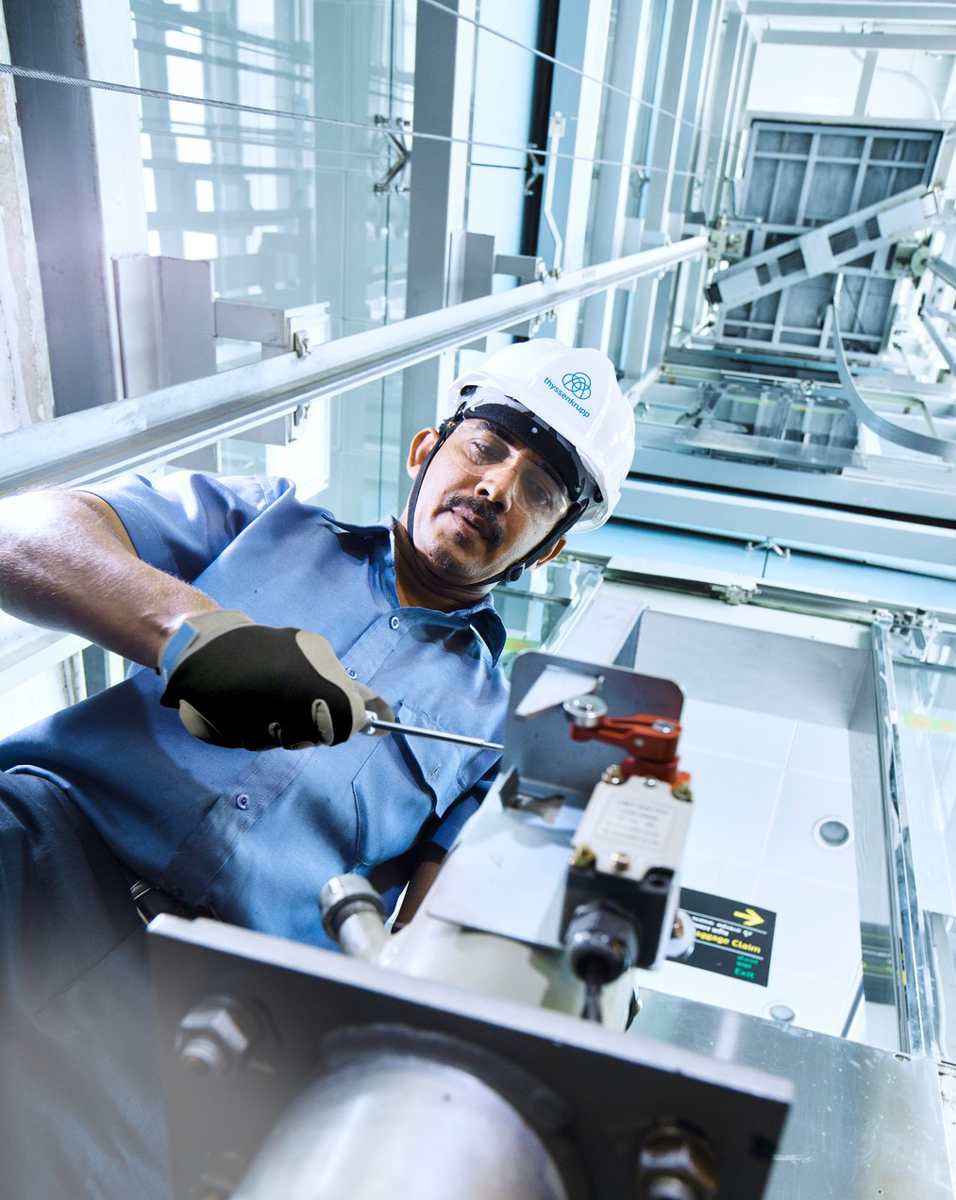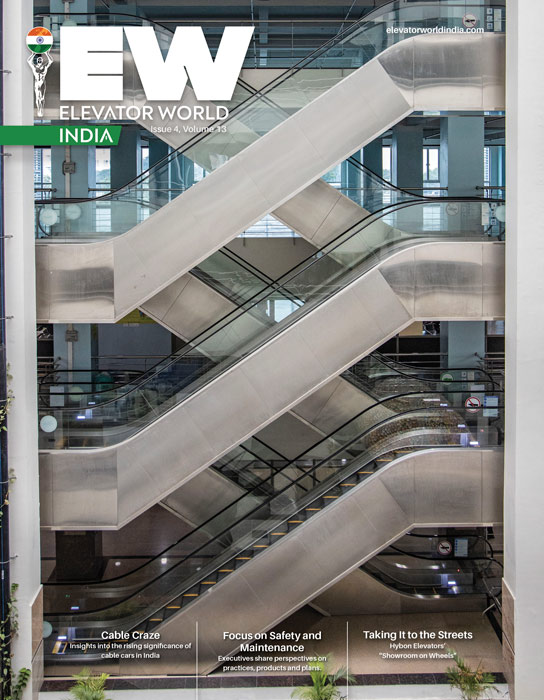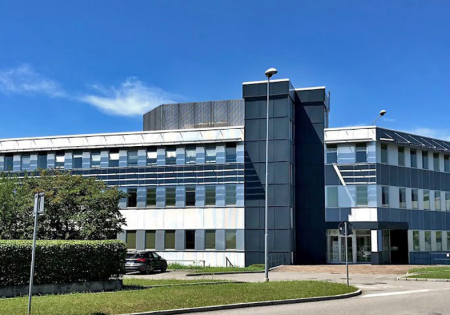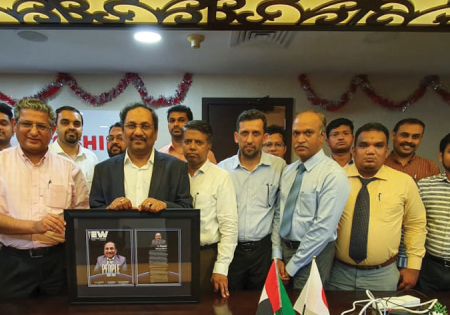Advancing With Technology
Dec 1, 2020

In this Readers’ Platform, thyssenkrupp Elevator India’s top executive offers reasons for sticking with an OEM, creating a uniform lift act and more.
Health and safety are among the cornerstones of thyssenkrupp Elevator’s strategy for success, and our constant target is to have zero accidents in the field, as well as in our manufacturing processes. We have high safety guidelines in all steps of the value chain, including R&D, operation, manufacturing and installation. We comply with all regulations and work in the direction of absolute transparency. As for our maintenance services, thyssenkrupp TEAMService brings a comprehensive approach to keeping people moving safely and reliably by offering smarter, more systematic and stress-free service.
Technology
There can be no compromise on safety. Employees are trained and sensitized to follow and promote safe practices. Safety drills are conducted at customer sites to educate them on safety measures. Our seed campus provides many e-learning modules on safety and various other topics for all our employees.
Additionally, all our products strictly comply with the Indian Standards (IS) and have a host of built-in safety features to ensure safety for our customers/users. We undertake measures to safeguard our employees, contractors and customers with risk-free working environments and vertical-transportation (VT) equipment.
Regulation
Lift licenses are required in only 10 states: Maharashtra, Gujarat, Tamil Nadu, Karnataka, Kerala, West Bengal, Assam, Himachal Pradesh, Haryana and Delhi. Each state has a different agency regulating the segment, and several states in India do not have a defined lift act. As a result, there is often ambiguity pertaining to the legal aspects of installing and maintaining lifts. This situation needs to be addressed sooner, rather than later. A national-level body for regulation and policy is needed. Deployment of a uniform lift act would not only improve product safety through the use of new technologies, it would also support the optimization of development, manufacturing and installation costs.
Maintenance
Having the OEM maintain the elevators ensures their safe and reliable operation. Lately, however, housing societies, in an effort to save money, have begun cutting corners by switching to cheaper options from local service providers. This can put the elevator — and its users’ lives — at risk. And, even when newer housing societies install modern lifts, there is seldom emphasis on maintenance. Many housing societies change their leadership every year, which can create continuity problems for proper maintenance and safety.
thyssenkrupp has begun offering predictive maintenance services for customers’ VT equipment that allows maintenance and replacement of critical parts by using technology to ascertain the status of their life, irrespective of whether a malfunction has occurred. To protect customers during the COVID-19 pandemic, we have launched an app that allows them reach out to us without having to step out of their safe spaces. The app also provides them with the status of their service calls and closures. On our major projects, we’ve given customers direct access to the health status of their equipment by way of our web portal. Customers can directly log in and access real-time technical information about their elevators.
We have also launched “thyssenkrupp Pay Now,” an online solution that allows customers to make payments anywhere. Pay Now offers data security and integrity, with all data maintained on thyssenkrupp’s server, plus the ability to make payments in three easy steps.
thyssenkrupp has digitized aftersales service, with technicians being connected to the office by smart tablets. These devices enable them to provide more efficient service to elevators and escalators with better response time. Smart tablets give technicians access to routes, manuals, technical databanks and expert advice, even in remote locations.
thyssenkrupp Elevator’s MAX is a predictive and preemptive maintenance and service solution that extends remote monitoring capabilities to dramatically increase availability levels of VT equipment. Utilizing Microsoft Azure Internet of Things technology, MAX makes it possible for an elevator to “tell” service technicians its real needs, including real-time identification of needed repairs and component replacements.
Get more of Elevator World. Sign up for our free e-newsletter.




